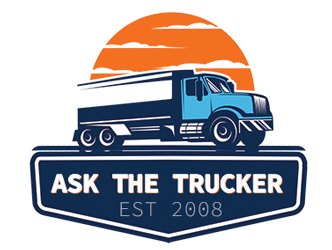Bull Hauler Trucking Jobs
Bull haulers are truck drivers who specialize in transporting cattle and other livestock. Despite the name, they don’t just haul bulls but a variety of different livestock as well. These drivers are often people who have grown up around the industry or on farms and have developed a love for working with animals.
Hauling cattle and other livestock requires patience, ambition, and a strong work ethic.
Drivers must be caring towards the animals and be diligent about their well-being. The job entails more than just driving; cattle haulers must manage the live cargo and ensure their safety throughout the journey.
This is not a job for drivers who enjoy taking long breaks at truck stops, as the animals’ needs must remain the top priority.
While searching for a job in cattle hauling, it is crucial to consider whether additional training or experience is needed for this specialization. Some drivers may enter the field after attending a school that provides training depending on the requirements of their prospective employer, while others may learn on the job. It’s essential to identify and evaluate any additional responsibilities that come with transporting livestock, such as managing animal welfare and handling different types of freight.
Qualifications Livestock Hauler Careers
These truckers are often passionate about their work, and their commitment is evident in their dedication to safely transporting animals. Driving long distances while keeping the welfare of the animals in mind can be challenging, but drivers who love their work make it a priority.
Bull haulers must constantly monitor the animals during transportation and take specific precautions to ensure their well-being, such as stopping frequently to check on them. These truck drivers are vital for the livestock industry, making sure that the animals are transported safely and efficiently.
To become successful in this field, individuals must meet certain qualifications and requirements.
- Possessing a Commercial Driver’s License (CDL): This is a mandatory requirement for all bull haulers. Aspiring drivers must be at least 18 years old (21 for interstate driving) and meet certain vision and physical requirements. Obtaining a CDL involves passing a written test and a skills test, including a pre-trip inspection, basic vehicle control, and on-road driving.
- Experience and Skills: Many companies prefer experienced bull haulers. It is essential for aspiring drivers to gain experience in the trucking industry and demonstrate their proficiency in handling livestock. Familiarity with livestock handling techniques and regulations can be beneficial.
- Physical Endurance: Bull hauling requires drivers to have good physical endurance as they often need to load and unload the cattle, in addition to driving for long hours.
- Adherence to Livestock Welfare Regulations: Bull haulers must be familiar with and comply with local and federal livestock welfare regulations. The safety and well-being of the livestock during transportation are crucial.
- Trailer Knowledge: A good understanding of the truck and specialized cattle trailers, such as their loading capacities, is necessary. For instance, some trailers can carry up to 28 to 30 cows at a time, depending on the size and design.
By meeting these qualifications and requirements, aspiring bull haulers can embark on a rewarding career in livestock transportation.
Ultimately, drivers must weigh the benefits of working as a bull hauler and whether the extra responsibility and workload are worth the potential increase in pay. Some may find that their passion for working with animals makes the additional effort worthwhile, while others may prefer to haul non-living cargo like dry vans. Whichever path is chosen, the key to success in any trucking career is a commitment to safe and efficient driving practices while prioritizing the welfare of the cargo, whether it’s livestock or consumer goods.
Livestock / Cattle Hauler Pay
Bull hauler pay often depends on factors such as experience, location, and the company they work for. On average, bull haulers in the United States earn around $56,348 per year. The range of salaries varies from $43,000 to $68,000.
In comparison, heavy and tractor-trailer truck drivers in the specialized freight trucking sector, which includes bull haulers, earned an hourly mean wage of $24.60 in May 2020. This translates to a mean annual salary of $48,690. Thus, bull haulers’ earnings tend to be higher than their counterparts in the trucking industry.
Key factors contributing to their remuneration include:
- Demand: Bull haulers are crucial for the efficient functioning of the livestock industry. Their specialized skill set and the nature of their work create a unique demand for these professionals.
- Skills and experience: Specialized knowledge and experience in handling livestock add to the overall value of bull haulers, which, in turn, impact their salary. Experienced drivers who have built a reputation in the industry often command higher pay.
- Working conditions: Bull haulers often face challenging working conditions like long hours, erratic schedules, and exposure to livestock-related hazards. As such, the pay scale is generally higher to compensate for these factors.
Key points: Bull haulers typically earn more than other trucking jobs due to their specialized skills, demand, and challenging working conditions.
Working Conditions

Working as a cattle hauler, you will often face unique working conditions and challenges due to the nature of your job.
Here is a summary of the typical working conditions for a bull hauler:
- Long Hours: Bull haulers often spend long hours on the road, which can lead to fatigue and stress. They need to adhere to strict hours of service regulations to ensure road safety.
- Varied Work Environment: The work environment for bull haulers can range from rural farms to large cattle processing facilities. This requires them to be adaptable and knowledgeable about different loading and unloading procedures.
- Weather Conditions: Bull haulers often operate in various weather conditions, from extreme heat and cold to heavy rain and snow. They must ensure the wellbeing of the livestock they are transporting by maintaining proper ventilation and temperature control inside the trailer.
- Handling Livestock: Bull haulers must have a strong understanding of animal behavior and be skilled in handling cattle safely and efficiently. This includes managing the animals during loading and unloading, as well as monitoring their health during transport.
- Equipment Maintenance: Bull haulers are responsible for maintaining their specialized trailers, which are designed to accommodate the needs of livestock. Regular inspections and repairs are essential to ensure the safety and comfort of both the driver and the animals being transported.
Bull haulers face unique working conditions that require specialized skills and knowledge. They must be adaptable, experienced with handling livestock, and committed to maintaining a safe and efficient work environment in order to succeed in this demanding profession.
Frequently Asked Questions
Essential Equipment in a Bull Hauler Trailer
A typical bull hauler trailer is equipped with various features to ensure the safe and efficient transport of livestock. Some key components include:
Safety Concerns for Bull Haulers on the Road
Bull haulers face several safety issues while on the road, which are vital to address:
Maintaining Livestock Welfare during Transport
Bull haulers employ various strategies to ensure the well-being of the livestock they transport:

